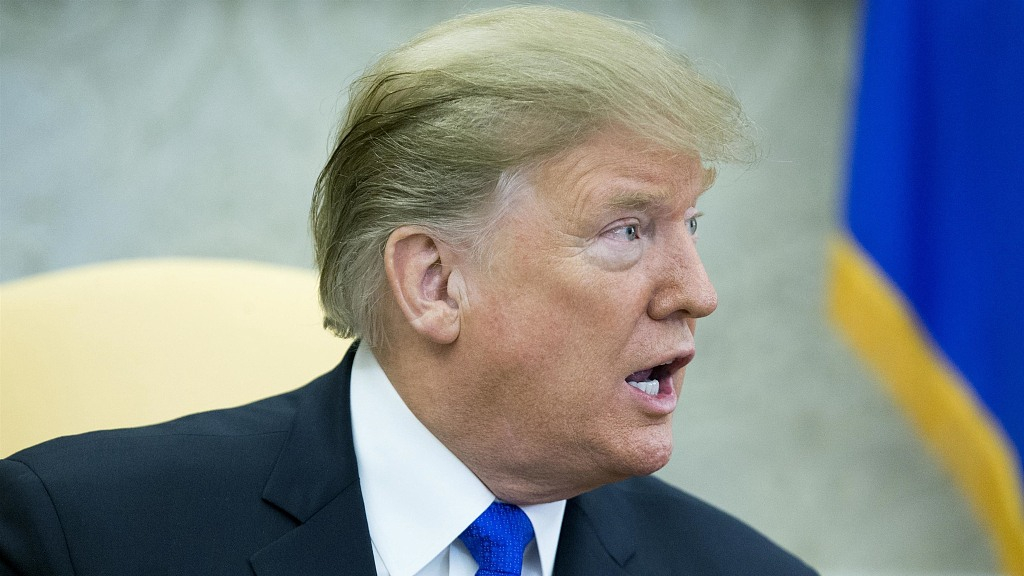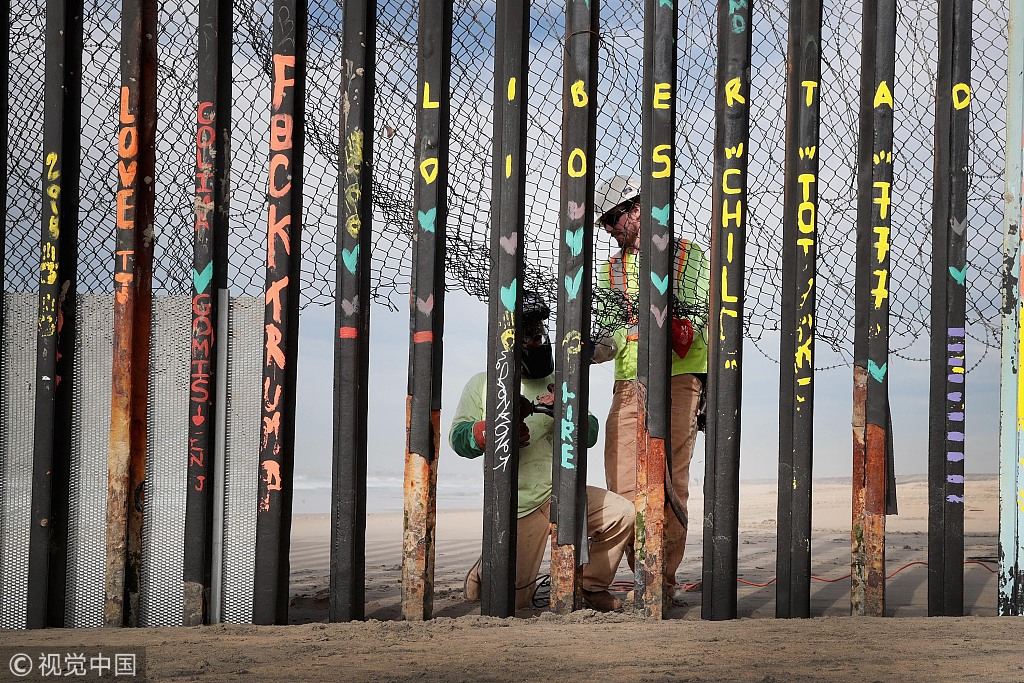
Opinion
21:20, 15-Feb-2019
Trump's wall faces the wall
Updated
11:37, 16-Feb-2019
Tom Fowdy

Editor's note: Tom Fowdy, who graduated with an MSc in Chinese Studies from Oxford University and majored in politics at Durham University, writes on the international relations of China and the Democratic People's Republic of Korea. The article reflects the author's views, and not necessarily those of CGTN.
U.S. President Donald Trump has announced he will declare a "national emergency" in order to bypass Congress and force through funding to build his much acclaimed "wall" on the border with Mexico.
The move comes after a chronic dispute with the U.S. House of Representatives, and failure to reach an agreement to include the five-billion-U.S.-dollar project as part of the national budget for border security, which had previously led to a month-long government shutdown between December and January.
Although Trump has since agreed to reopen the government and sign a bill to continue border funding, with no compromise possible between the two parties on the matter of his will, the president is now on the verge of resorting to a measure widely regarded as extreme and for many of his critics, even an abuse of executive power.
If Trump does as he says and goes down this route, it will inevitably result in a series of legal challenges which will surely derail his efforts.
He seems in a state of denial that he is facing an almost certain political defeat. As each effort to salvage his pet project proves to be yet another miscalculation, his actions are becoming more and more irrational. The wall itself faces a wall.

Workers on the American side of the border repair a hole in the border wall that separates the U.S. and Mexico in Tijuana, Mexico, January 28, 2019. /VCG Photo
Workers on the American side of the border repair a hole in the border wall that separates the U.S. and Mexico in Tijuana, Mexico, January 28, 2019. /VCG Photo
As the battle with Congress over the border wall rages on, the weaknesses in Trump's classic negotiating style are being exposed, painfully.
The president has often approached high-stake political, diplomatic and business issues by making threats to his opponents, which appear extreme and irrational, expressing no public interest or empathy in the consequences. If they don't listen to him, he ups the stakes and keeps doing so until they cave to the severity of the situation fearing the worst.
As a few examples, Trump has threatened nuclear war against Pyongyang to force it to negotiate its nuclear weapons program; he placed extensive tariffs on China and threatened to increase them unless China made concessions on trade; as a businessman, he would abuse state bankruptcy laws to hamstring creditors to his casinos and so on. Thus, it was only inevitable that when the U.S. House of Representatives turned blue last November, he decided to use these strategies in an attempt to negotiate with Congress, especially given his most famous and high-stakes policy. "The wall" with Mexico was now on the table.
What Trump underestimated is that the Democrats were prepared for a long political fight. Trump believed that by pushing them into an excessive government shutdown, whilst attempting to amplify fear of immigration by exaggerating the extent of criminals and drugs coming over the border, he could place pressure on them and force them to cave in.
Except this time, it didn't work. Trump miscalculated believing that the public would buy his narrative and blame the Democrats. They didn't. Instead, a majority of voters blamed him, and his ratings plummeted. Nancy Pelosi had seized the initiative and reflected the heat on him.

Protesters against the border wall gather in downtown El Paso, Texas, January 26, 2019. /VCG Photo
Protesters against the border wall gather in downtown El Paso, Texas, January 26, 2019. /VCG Photo
As the shutdown dragged on, Trump stumbled and in an elaborate display of personal weakness, ended the gridlock himself voluntarily. Suddenly, he didn't seem so tough. Not only did he cave in over the shutdown, but also surrendered to excluding the wall from the border security funding itself. In making these concessions, Congress had won. The president's most famous and insisted-upon measure faced total defeat.
Trump, however, cannot accept this. As an individual, he is very prideful and believes so strongly in "winning."
Cornered by congressional opposition, would he allow his political platform to collapse or offer an incentive for them to strike down other policies? What has he decided to do? He denied reality by resorting to an escalatory measure which raises serious questions about its constitutionality, the use of emergency measures to force through the wall by drawing funds away from military and disaster response reserves.
This is desperate. It won't work. As we have seen, the majority of the public is simply not buying his fear-mongering about illegal immigration. Rather than seeing this as an emergency, they are more likely to perceive it as a staggering abuse of personal power and a challenge to the integrity of the American system itself. Congressional Democrats have been very clear in their intent to launch legal challenges against it. They have a good chance of winning. In any scenario, this strategy is a complete non-starter.
What can be concluded? The president is losing touch with reality. Unable to conceive that he has been politically defeated over his wall, he is resorting to increasingly irrational and questionable actions which are only likely to amplify the political consequences.
I had written in early January that the wheels are coming off the Trump administration as his snake oil promises begin to unravel and as he cracks under congressional scrutiny. This is the surest sign of it.
It's all downhill from here. Trump's wall faces the wall.
(If you want to contribute and have specific expertise, please contact us at opinions@cgtn.com.)

SITEMAP
Copyright © 2018 CGTN. Beijing ICP prepared NO.16065310-3
Copyright © 2018 CGTN. Beijing ICP prepared NO.16065310-3